How Portugal citizenship by investment works
Thinking of applying for a Portuguese passport? Read our guide on the Portugal citizenship by investment programme, featuring requirements, costs and benefits.

Dreaming of a sun-drenched retirement in Portugal? With its hot climate, fantastic food, great quality of life and low cost of living, it’s easy to see why. You won’t be alone either, as an estimated 50,000 British retirees¹ currently call Portugal home.
If you’re planning a move to Portugal for your post-work years, read on. We’ve put together a handy guide covering everything you need to know about retiring in Portugal, from visas and pensions to the best places to live.
And of course, we’ll tell you all about how you can save money on relocation costs with a Wise multi-currency account.
But first, let’s look at a few reasons you might want to retire in Portugal, along with any potential drawbacks to bear in mind.
So, what’s so great about Portugal then? Let’s run through a few of the main reasons it's such a hotspot for UK retirees, plus anything that could throw a spanner into the works for your retirement plans.
Advantages of retiring in Portugal:
Low cost of living. What does it cost to retire in Portugal? Very little indeed. Portugal is much cheaper than the UK in almost every spending category, which could help your retirement savings go further. For example, you’ll pay around £26 for a three-course meal in Portugal, compared to £50 back in the UK. A pint of milk is just 55p (92p in the UK) and a beer is only around £1.74 (£3.67 in the UK)².
Affordable property prices. To rent a one-bed city centre apartment in Portugal, you’ll pay around £510 a month, whereas in the UK this would cost around £745². Property to buy is reasonably priced too, and a whopping 50% cheaper² than buying in the UK (depending where you buy).
Beautiful coastlines and glorious weather. Portugal has a fabulous variety of landscapes and places to live, but it’s famous for its stunning coastlines and sun-kissed beaches. And if you want to escape the cold British winters, this is the place to do it. Portugal is blessed with a sunny Mediterranean climate, with hot summers and usually mild winters.
And of course, there’s the delicious seafood and easy-drinking wine, large British expat community and friendly, welcoming people.
Are there any downsides of retiring to Portugal? Here are some minor things to consider:
Winters in Portugal can sometimes be cold and wet, although it depends where in the country you move to.
The Portuguese language can be tricky to master, so it’s worth checking whether English is widely spoken in the area you’re looking at.
Driving in Portugal can be a little stressful and fast-paced for non-natives, but luckily there is generally less traffic than in other European cities.
As you start looking into retiring in Portugal, it’s useful to know a little more about each of the towns, cities and regions popular with UK retirees and expats.
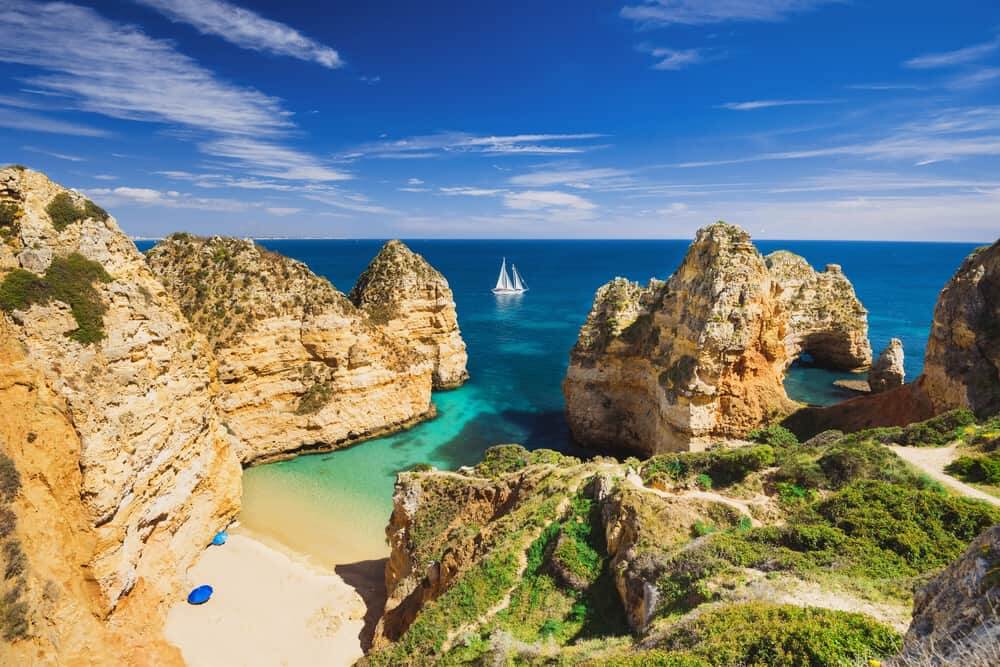
By far the most popular Portuguese destination for UK expats - and expats from around the world - is the gorgeous Algarve region on the southern coast of the country. There are 16 municipalities to choose from here, including vibrant coastal towns and quieter idyllic countryside spots too. It’s extremely affordable and amazing for beaches, sparkling seas and sunbathing. Although you will need to cope with the influx of tourists in the summer season.
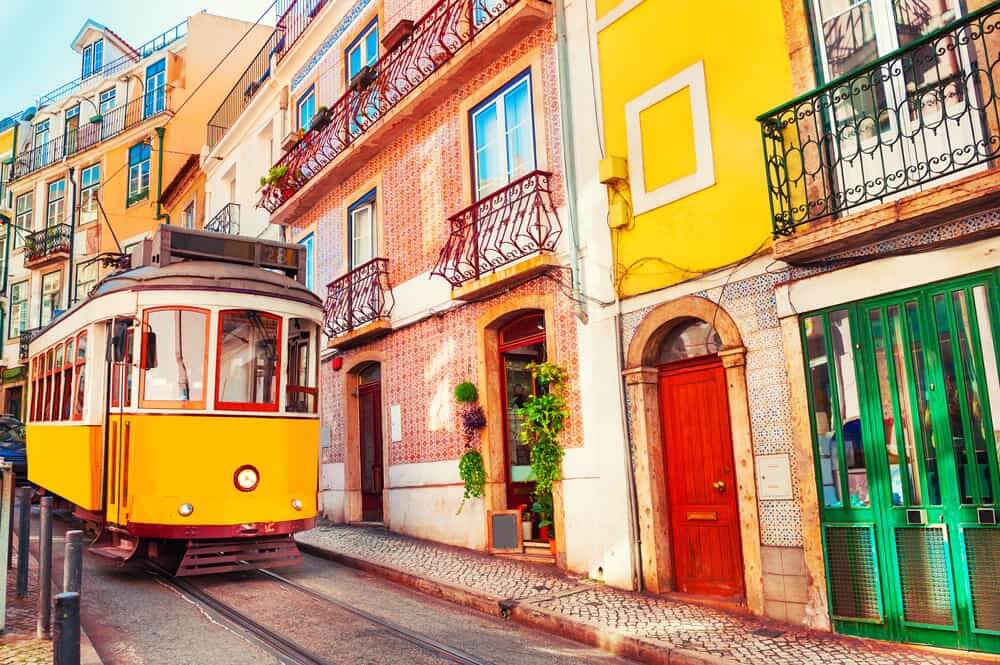
If you’re just beginning your search for somewhere to live in Portugal, why not start with its capital? Lisbon has it all, including a sunny climate, plenty of bars, restaurants and cafes and it's just a short drive to gorgeous beaches and coastline. It’s worth bearing in mind that Lisbon is famously a hilly city, but it does have great public transport (including those iconic yellow trams) to help you get around
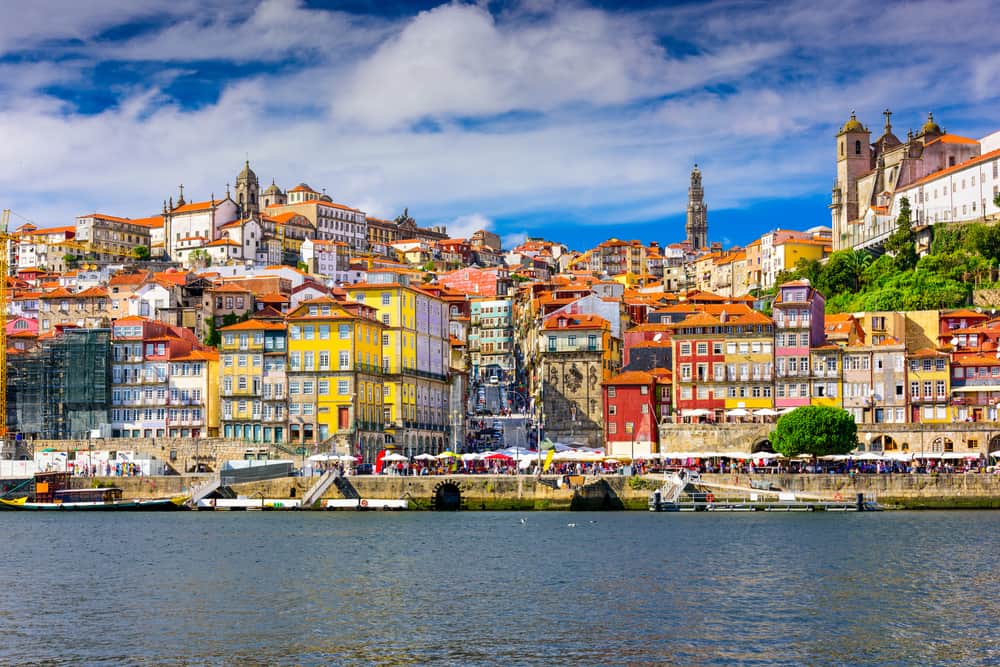
The second-largest city in Portugal has a growing community of British expats, who love this culture and history-rich city centre. Porto is compact, very walkable and the perfect place for world-famous wine and entertainment. Its climate is a little cooler than other parts of the country and property prices can be a little high in the centre, but head to the outskirts (particularly the expat-friendly area of Vila Nova da Gaia) for a better deal.
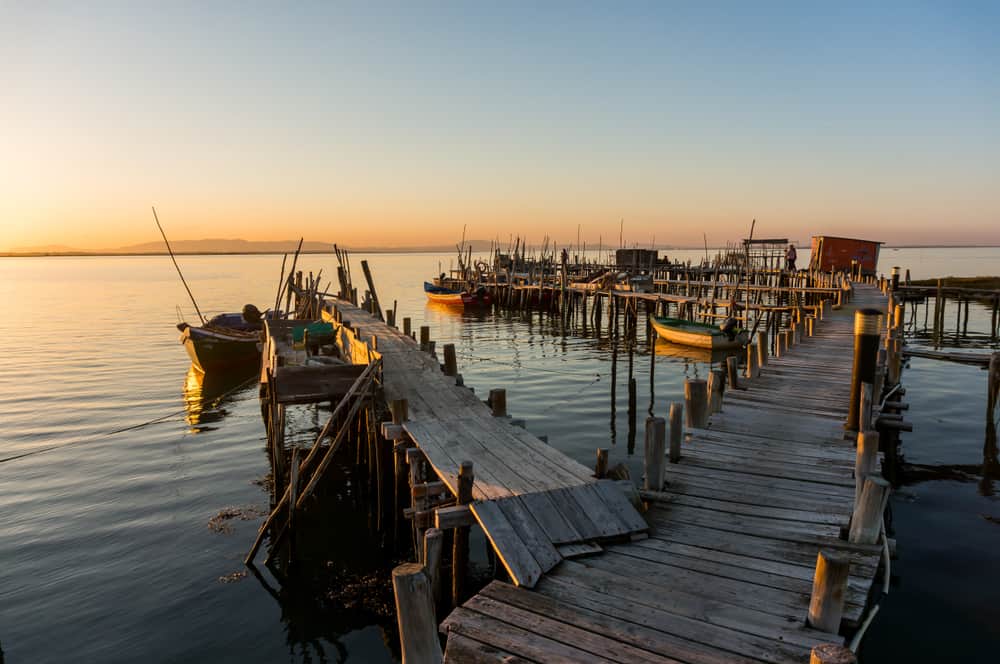
The port town of Setubal isn’t too far from Lisbon, making it a good choice if you want to be close to transport connections back to the UK (and all the attractions of Lisbon too). Setubal itself has a lively town centre, an irresistible food and drink scene, and gorgeous coastal scenery. There’s a growing number of UK expats here, attracted by the beaches, forests and greenery on Setubal’s doorstep.
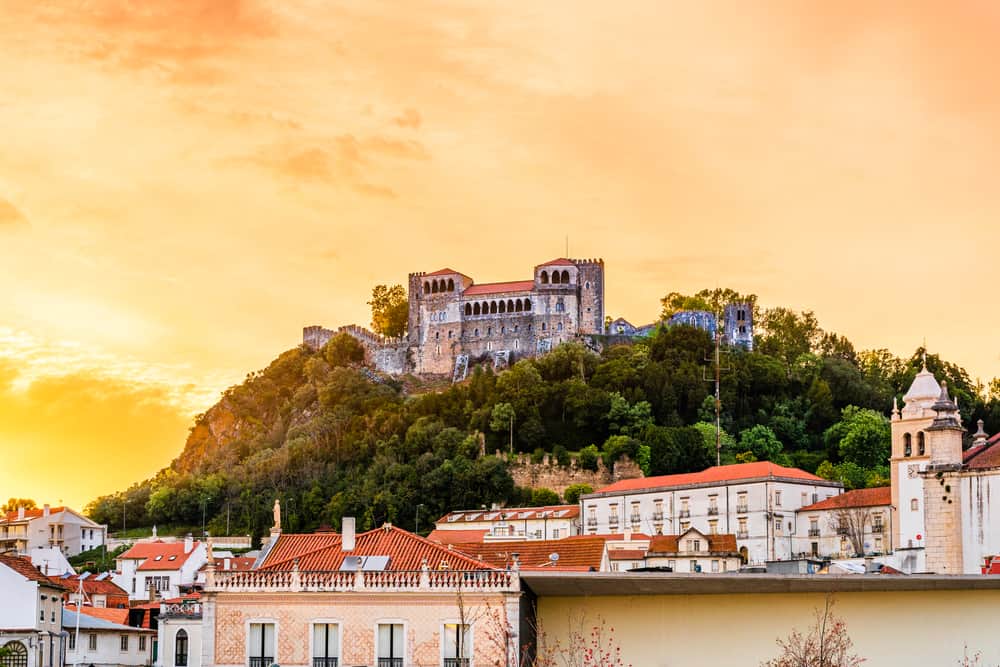
Looking for something smaller, quieter and more authentically Portuguese? Steer clear of the tourist hotspots and throw yourself into Portuguese life in the small city of Leiria in central Portugal. There are some Brits here, but learning the basics of the Portuguese language is pretty much a must.
Leiria is a charming city with much to recommend it, including a historic castle and cathedral, and it’s also very affordable. Plus, you can drive to plenty of lovely local beaches on the Silver Coast of Portugal.
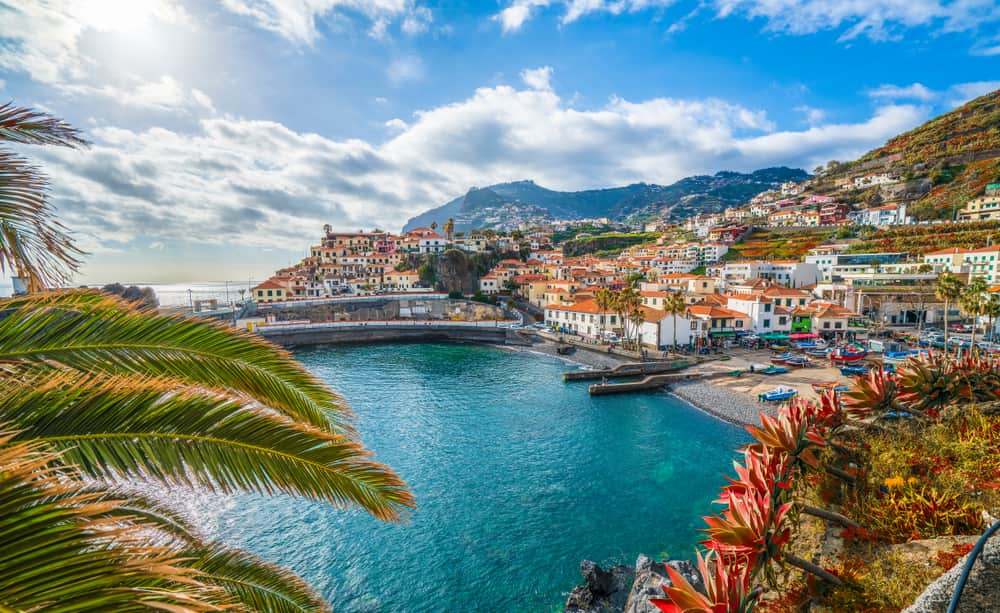
If you have fond memories of sun-kissed holidays on the lush green island of Madeira, why not retire there? It has a lovely year-round climate and a growing expat community, many of whom head there for its stunning natural beauty. Bear in mind though that property and the cost of living in Madeira can be higher than other parts of Portugal, and it does fill up with tourists in the summer months.
Now, let’s run through a few of the most important things you’ll need to know for your new life in Portugal:
Pensions. You can claim your UK state pension in Portugal, and you can transfer over personal and other pensions. It’s a good idea to get professional pensions advice to help you do this, and you’ll need to choose a Qualifying Recognised Overseas Pension Scheme (QROPS) in Portugal or you could face a high tax bill. If you’ve worked and made social security contributions in Portugal or another EU country for at least 15 years, you may be eligible to claim the Portuguese state pension too³.
Taxes. If you’re a resident in Portugal, you’ll pay tax on all global income, whereas non-residents only pay tax on income earned inside the country. If you need to pay tax, you’ll need to register for a Número de Identificação Fiscal or NIF⁴.
Registering for residency. Before you can move to Portugal, you’ll need to apply for a residence permit. This is temporary for five years, after which you can apply for permanent residence³.
Healthcare⁵. Once you’ve got your residency permit, you should be able to access the Portuguese national health service (SNS) on the same basis as a citizen. This means you can access healthcare for low costs, with the rest subsidised by the state. Alternatively, if you receive a UK state pension, you can apply for the UK to cover the cost of your state healthcare.
Property. There are no restrictions in Portugal on buying a property if you’re a foreign citizen, but you will need to have your Número de Identificação Fiscal or (NIF) first⁶.
One of the most important things on your pre-move to-do list is to get your Portugal retirement visa sorted. There are two main options - a residency visa for retirement purposes, and the Portugal Golden Visa.
This is a fixed residency visa for stays of more than one year, with retirement the primary reason for your stay. You can apply for this visa at the Consulate General of Portugal in London or Manchester with the following documents⁸:
Once you have your residency visa, you’ll need to apply for a residency permit with Immigration and Border Services (SEF) within 4 months of your arrival⁸.
The other route into Portugal for UK expats is the Golden Visa scheme. This is designed for non-EU applicants, making it a good option for Brits now that the UK has left the European Union. However, you need to be able to meet strict criteria for this visa, including making a significant investment in the Portuguese economy. There are various ways you can do this, including:
If you have the cash, you could be granted a temporary residence permit for a year. This creates a route for a permanent residence application after 5 years, and citizenship after 6 years.
We’ve covered a lot of ground so far in this guide, so let’s sum up the key steps you’ll need to complete before you can retire in Portugal:
Apply for your visa. Submit your completed application form and supporting documents to your nearest Consulate General of Portugal and pay the application fee.
Find somewhere to live. It’s a good idea to take a few trips out to Portugal before you settle on an area. This’ll help you to get a feel for the place and scout out suitable property to rent or buy.
Tell HMRC that you’re leaving the UK. You can apply at the International Pensions Centre to receive your UK state pension in Portugal. Now could also be a good idea to seek advice from a pensions advisor about transferring over any other pension savings.
Arrange to have your belongings shipped to Portugal. Get a few quotes, or keep costs down by travelling light and buying what you need when you arrive.
Apply for a residency permit. You can do this with the Portuguese Immigration Service or SEF (Servico de Estrangeiros e Fronteiras) - more information on how to do this is on the SEF website.
Register for healthcare. You’ll need to do this at your local health centre once you arrive. If you receive the UK state pension, you may also want to look into completing an S1 form so that your healthcare is paid for by the UK.
Apply for a Número de Identificação Fiscal (NIF). You’ll need this if you’re liable for tax, but it’s also essential for buying property or opening a Portuguese bank account. You can apply for your NIF here.
You’re likely to have lots of costs to cover before your big move to Portugal, from rental deposits and property-related charges to visa application fees. If you use your bank for these cross-border payments, you could end up losing money to currency conversion fees and unfavourable exchange rates.
Open a Wise multi-currency account instead and you can send money between the UK and Portugal for tiny fees and the real, mid-market exchange rate. You can even use this powerful, secure account to get better exchange rates and swerve fees when receiving your UK state pension and other payments from the UK.
And from the moment you land in Portugal, you can spend like a local using your contactless Wise debit card. This automatically converts currency to EUR at the fairest exchange rate, for only a small conversion fee. You don’t need to change money or carry cash around - you can just tap, spend and go.
Join Wise and start saving today
After reading this guide, you should have all the essential info you need to start planning an incredible Portuguese retirement. We’ve covered visas, pensions, healthcare and everything in between, so you should be all set. Good luck and enjoy your well-earned retirement in the sun!
Sources used for this article:
Sources checked on 4th May 2021
*Please see terms of use and product availability for your region or visit Wise fees and pricing for the most up to date pricing and fee information.
This publication is provided for general information purposes and does not constitute legal, tax or other professional advice from Wise Payments Limited or its subsidiaries and its affiliates, and it is not intended as a substitute for obtaining advice from a financial advisor or any other professional.
We make no representations, warranties or guarantees, whether expressed or implied, that the content in the publication is accurate, complete or up to date.
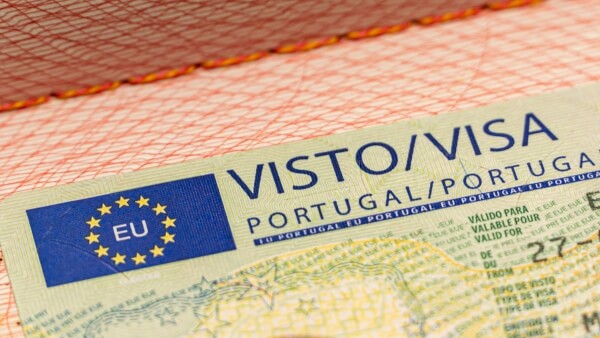
Thinking of applying for a Portuguese passport? Read our guide on the Portugal citizenship by investment programme, featuring requirements, costs and benefits.
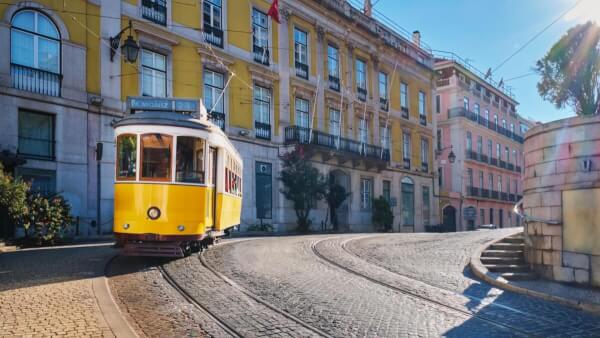
Read our helpful guide on how to transfer a UK pension to Portugal, including the steps, fees and taxes involved.
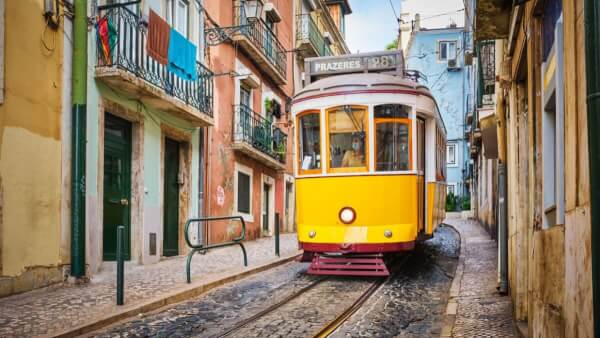
Discover everything you need to know about inheritance tax in Portugal. Our comprehensive guide covers the rates, who pays, how to calculate, and much more.

Thinking of starting a new life somewhere warm and sunny? Portugal might be just the perfect spot. In fact, UK natives are the second largest expat group in...

A guide to the residence permit in Portugal, covering who can apply, how to apply, how it works and costs.
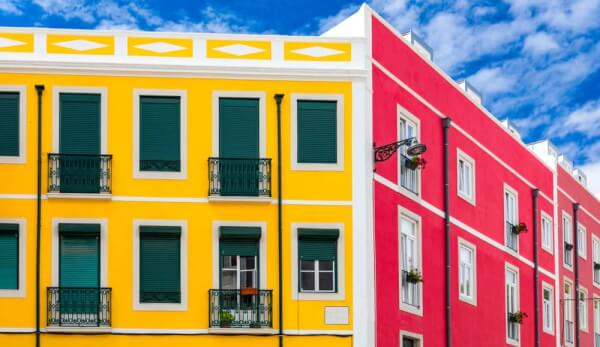
Everything you need to know about paying property tax in Portugal, including types of tax, rates for 2021/22 and how to pay your taxes.